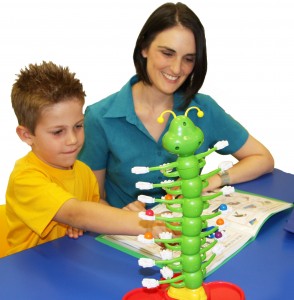
If you are waiting for an assessment or for speech therapy for your child, or just want your child to speak more clearly here are some simple things that can make a real difference to their speech development.
If you are concerned about your child's speech or not sure if they are developing as they should be for their age click here to find out more about signs of a speech difficulty.
1. Talk together every day. The more speech your child hears the better their speech will be. Speak clearly and use the correct words for things. Try to find some uninterrupted time and just talk together.
2. Look after your child’s hearing. Have a hearing test with a qualified audiologist if you are concerned about hearing or speech and always follow up on any ear infections. Here are some ideas to develop your child's listening skills.
3. Get face to face with your child. Ensure your child can see your face when you are talking to them. When you model tricky words or sounds make sure they can see as well as hear you.
4. Play games with sounds. During play, encourage sound play using speech sounds. Try car games: car - putt, putt, down a ramp – weeeeeeeee, horn honking - beep, beep; or farm animals: baa, moo, nay, woof.
5. Be realistic. Be aware of the ages children typically develop sounds and what sounds to expect from your child. Typical ages for sounds to develop are: 3 years – m, n, h, p, w, d, g, y, k, f, b, t; 4 years – sh, ch, j, l, s; 5 years – r, v; 6 years – z; 8 years – th
6. Listen to what your child says not just how they say it. The main reason we speak is to communicate an idea. Make sure you listen to what your child is saying and respond to that. A child who feels listened to and heard will communicate more.
7. Be positive. Use lots of encouragement and tell your child what they have done well. Use specific words. “I like the way you used your words to ask for that”. “I like the way you tried that new tricky word”. “You tried to fix that /s/ sound, well done”
8. Recast your child’s errors. If your child makes a mistake when talking, repeat what they say, fixing the mistake to show them the right way. Use a positive tone and repeat it a few times but keep it natural. E.g. Child “I see a shish”. Adult “Yes a fish, I see the fish too, a pretty fish”.
9. Model new words with tricky sounds. Look at books and play games that allow you to teach your child new words with sounds your child finds tricky.
10. Practice tricky words. If there are important words your child has difficulty with, such as names of family members or other important people, or things that they like to talk about often, give these some extra practice. Make a list of three to five only and put them on the fridge. Add a picture for each if your child can’t read. Say each word clearly for your child and ask them to try and copy you. Try each word a couple of times per day and praise your child for trying and for getting clearer.
For more information about speech and language development visit the downloads section of Our website. If you are concerned about your child's speech or language development visit theTalking Matters website to see how speech pathology can help.
For more ideas and resources for developing children's speech, language, learning and social skills check the resources section on our website and our extensive pintrest page. Like us on Facebook and follow us on Twitter so you don't miss out on what's happening.
Related Blog Posts
If you liked this post you may also like:
A mum's 10 ASD therapy tips
About dyslexia
Developing Your Child's Vocabulary
Tantrums and meltdowns 101



